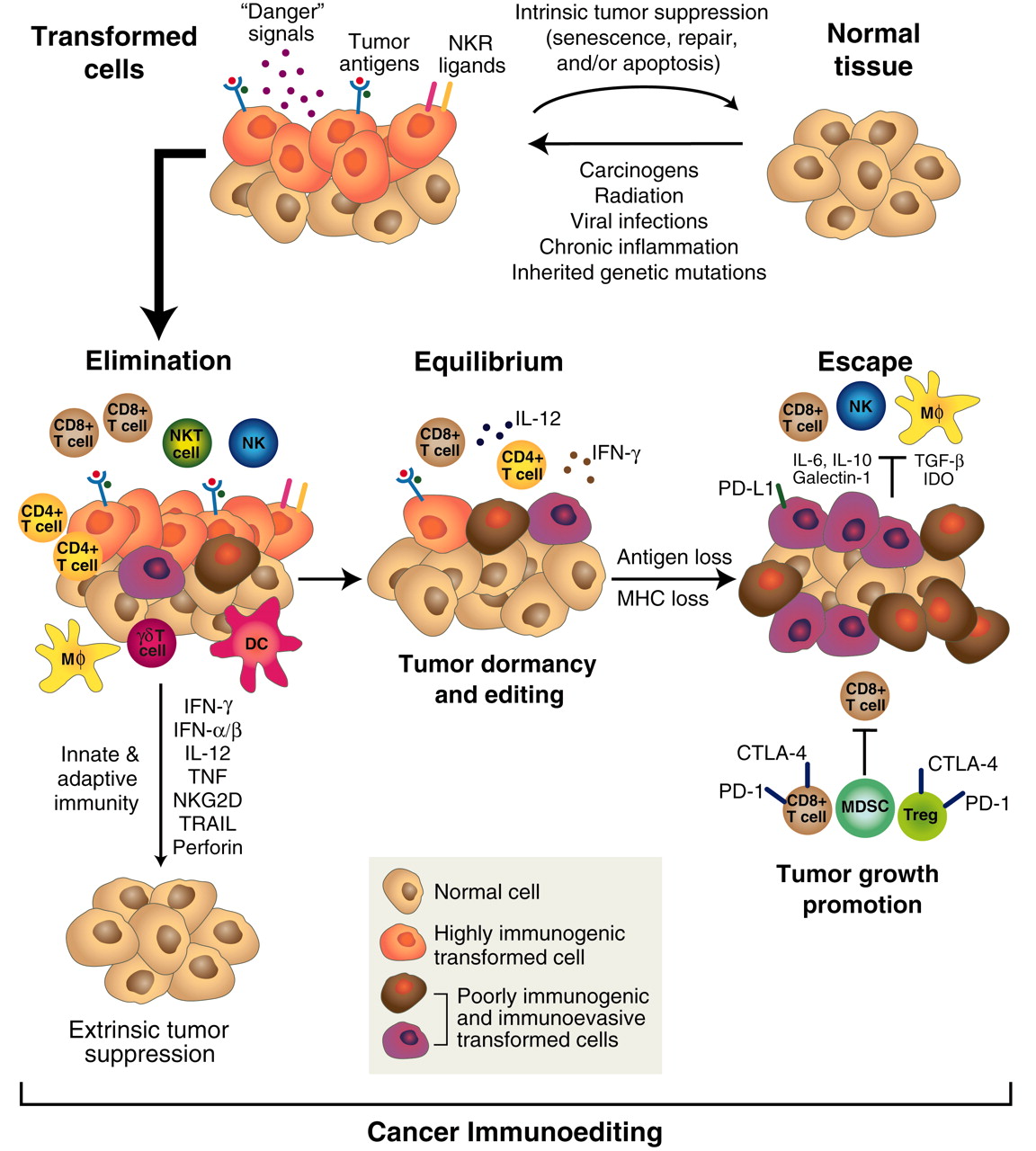Introduction
The ability of the immune system to continuously monitor and edit the cells of the body is fundamental to its function. This process, known as immunoediting, helps ensure that only healthy cells are allowed to proliferate, while damaged or diseased cells are destroyed. Immunoediting also plays a role in cancer, where it can either promote tumor growth or help keep tumors in check.
The first step of immunoediting is called innate immunity, which involves the recognition and destruction of foreign invaders by the body’s natural defenses. This includes physical barriers like the skin and mucous membranes, as well as chemical defenses like enzymes and antibodies. When these defenses fail, adaptive immunity comes into play. Adaptive immunity uses specialized cells and proteins to specifically target and destroy invading pathogens.
Immunoediting can be divided into three phases: elimination, equilibrium, and escape. The elimination phase occurs when the immune system successfully destroys all precancerous or cancerous cells before they have a chance to multiply. In the equilibrium phase, the immune system keeps pace with cancer cell proliferation, but is unable to eradicate all of them. This can lead to a prolonged period of stability, during which time cancer may not cause any symptoms or problems. However, eventually some cancer cells will develop mutations that allow them to evade detection by the immune system (escape phase). These mutated cells then have a competitive advantage over their non-mutated counterparts and can begin multiplying unchecked, leading to tumor growth.
There are several ways that immunoediting can influence cancer development:
Elimination: The immune system may completely eliminate all precancerous or cancerous cells before they have a chance to proliferate (this is more likely to occur in early-stage cancers).
Equilibrium: The immune system may keep pace with cancer cell proliferation but is unable to eradicate all of them (this often leads to a prolonged period of stability without any symptoms).
Escape: Some cancer cells develop mutations that allow them t


